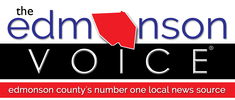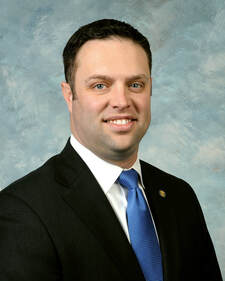|
House Approves Measure to Strengthen Public Assistance Programs by: Representative Michael Lee Meredith
Throughout my time in the Kentucky House, I have made this district my top legislative priority. When I go to work, I go to work for our families and our future. Throughout my time in Frankfort, I have supported policies aimed at growing our economy, protecting life, defending our most vulnerable, and preserving Kentucky values. This week the House passed legislation that I believe will do just that by making changes to how our public assistance programs serve our most vulnerable friends and neighbors. Kentucky has one of the lowest workforce participation rates in our nation, which means too many Kentuckians who should be working, are not. The number of people on our Medicaid program adds up to more than twice the number of children we have in our classrooms. Overall, almost 30 percent of our 4.5 million people are on some type of public assistance. HB 1 is the first step towards turning “benefit cliffs” into true “safety nets”. What is a benefit cliff? It is the term used to describe what happens when public benefits end as household earnings increase. The abrupt loss of benefits can actually set families back because even though household earnings increased, they do not increase enough to keep pace with benefits that are being lost. Many times this leads to a situation where entering the workforce is a negative for the individuals and their families who have been served by these programs. This measure is based on the idea that if public assistance programs are going to work, there must be accountability – for both the people they serve and the people who fund them. These programs were created to provide temporary assistance to help those in need get back on their feet and reach economic stability. However, over time we have spent billions and yet many of the programs are not reaching those goals. It is time for a fundamental change in how we approach public assistance. We must hold these programs accountable to the taxpayers who pay for them, and the people they serve. The bill preserves exemptions for pregnant mothers, the elderly, and others who are unable to work. It does, however, tackle drug abuse as a reason for unemployment by emphasizing drug treatment and available funding to pay for it. HB 1 requires Medicaid beneficiaries convicted of a drug-related charge to enroll in substance abuse treatment within 90 days of release from incarceration. This treatment could be paid for by money available through a substance use disorder waiver. HB 1 also makes decreasing fraud and misuse a priority. A part of the bill places all public assistance payments that an individual receives on one EBT card. This should not only make it easier for a recipient to keep track of the card, but also prevent those who want to take advantage of their benefits from selling or trading it for something. The bill also allows the state to eliminate eligibility for all public assistance programs for individuals found to be trafficking in EBT cards on more than one occasion. It restricts the use of cash withdrawn from an EBT card to only the purchase of goods and services necessary for the welfare of the family. The HCS codifies federal prohibitions on the use of cash benefits to purchase alcoholic beverages, tobacco products, or vaping products; goods or services at a casino or adult entertainment establishment; and services from tattoo or body piercing facilities. I want to stress that custodial parents who lose benefits because of fraud or misuse can reassign child benefits to another person – we do not want to add to the suffering any child might face due to the irresponsibility of a parent. I mentioned earlier that the goal for this bill is to eliminate the barriers that keep people from getting and keeping a job. Health insurance is a huge expense for all of us, but many people remain on Medicaid – and unemployed - only to keep their insurance. With HB 1, we are directing the Cabinet for Health and Family Services to explore funding and implementation options for creating a “bridge” insurance plan to provide health insurance coverage to those entering the work force through expanded time-limited eligibility for Medicaid. In addition to public assistance reform, we addressed several other important issues this week. The House passed a measure that will have a positive impact on roughly 500,000 Kentuckians. House Bill 12 would limit out-of-pocket costs for insulin prescriptions. The legislation mandates the cost of insulin would be capped at $100 per prescription for a 30-day insulin supply. The cap would apply to people with commercial health insurance plans. HB 136, which would legalize cannabis for medical use, also received approval in the House this week. Let me be very clear, I have never supported the recreational use of marijuana. In fact, I have been reluctant to support prior proposals on medical cannabis. However, research has proven that patients with certain medical conditions can benefit from treatment with cannabis. This particular proposal, along with some of the added amendments, strikes an appropriate balance of serving those patients without going too far. The bill would prohibit the smoking of cannabis but would allow other forms of consumption, such as edibles, oils, and tinctures. The bill requires that patients have a bona-fide relationship with a recommending doctor and they would have to receive consultation from a licensed pharmacist on possible interactions with other prescriptions they may be taking before receiving a card identifying them as eligible for the program. The bill creates a licensing process for producers, processor and those that sell these products. The bill also establishes an electronic monitoring system that would track the sale of these products to prevent misuse. If passed in the Senate, Kentucky will be the 34th state to legalize medical cannabis and we will have one of the most strictly regulated programs in the nation. As always, if you have any questions or comments about this session, I can be reached during the week from 8:30 a.m. until 4:30 p.m. (EST) through the toll-free message line at 1-800-372-7181. You can also contact me via e-mail at [email protected]. You can keep track of committee meetings and potential legislation through the Kentucky Legislature Home Page at legislature.ky.gov.
0 Comments
Your comment will be posted after it is approved.
Leave a Reply. |
Archives
July 2024
|
|
Copyright 2014-2024 The Edmonson Voice.
The Edmonson Voice logos are registered trademarks. Call or text: 270-597-6550 [email protected] PO BOX 94 BROWNSVILLE, KY 42210 CLICK HERE FOR DEADLINE INFO |








